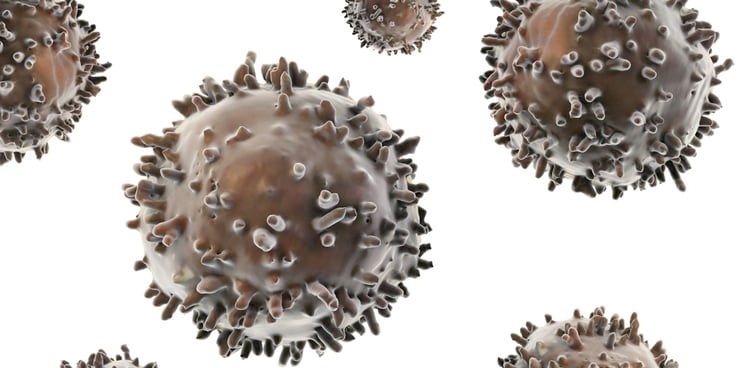Newsletter Signup - Under Article / In Page
"*" indicates required fields
An oversubscribed Series B2 round has seen the biopharmaceutical company iTeos Therapeutics raise €114M, which will be used to advance the clinical development of its two lead cancer immunotherapies.
The funds follow on from €65M raised by iTeos in Series B financing in 2018. Since then, the Belgian company has completed a phase I trial of its lead candidate, which showed clinical benefits in a number of patients with cancer. Additionally, iTeos launched a phase I/II study of its second key drug last month.
Michel Detheux, President and CEO at iTeos, explained to me that both of its immunotherapy candidates target key resistance mechanisms that tumors develop against anti-cancer drugs known as immune checkpoint inhibitors.
iTeos’ lead candidate drug does this by blocking a cell surface protein called A2A, which is normally activated by adenosine, a molecule thought to block the anti-cancer activity of immune T-cells in the tumor microenvironment. Blocking A2A could, in turn, prevent adenosine from inhibiting T-cell activity and the immune system’s anti-tumor response.
The company’s second candidate, meanwhile, acts against an immune cell surface protein called TIGIT, which, when bound to specific proteins on the surface of tumor cells, can prevent T-cells from recognizing and attacking the tumor.
“iTeos is at the center of the excitement around A2A and TIGIT, with both A2A and TIGIT programs in the clinic with the potential for broad application in oncology that target key [cancer immunotherapy] resistance mechanisms,” Detheux said.
“We are convinced we have a unique, next-generation immuno-oncology pipeline.”
Merck also seems to share some of iTeos’ confidence in the technology, as the two companies launched a collaboration in December 2019 to test iTeos’ lead candidate drug in combination with Merck’s checkpoint inhibitor Keytruda.
“The excitement around A2A and TIGIT as the next hot areas in [immuno-oncology] has been building for some time,” Detheux said, pointing out that Roche, Genentech, and Merck have each unveiled their strategies for targeting these pathways. Indeed, data for Roche’s anti-TIGIT drug tiragolumab is expected to be presented at oncology meetings this year.
The amount of Series B2 funding raised suggests that investors can also see the value of these novel drugs. The round was co-led by RA Capital Management and Boxer Capital, and included new investors Janus Henderson Investors, RTW Investments, and Invus along with existing investors MPM Capital, HBM Partners, 6 Dimensions Capital, Curative Ventures, Fund+, VIVES Louvain Technology Fund, SRIW, and SFPI.
The next steps for iTeos include reporting preliminary data on its lead candidate dose escalation trial in April and continuing the phase I/II trial of its second drug, with initial safety and efficacy results expected in the first half of 2021.
Image from Shutterstock






